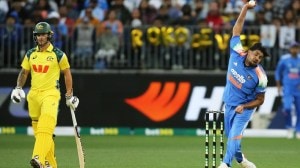‘If everybody is going to entertain, who will give us news?’
In response to the criticism heaped on the media coverage of the Mumbai terror attack, the Foundation of Media Professionals held a panel discussion on Friday on “Who is to blame for media hysteria? Journalists or viewers?”

In response to the criticism heaped on the media coverage of the Mumbai terror attack, the Foundation of Media Professionals held a panel discussion on Friday on “Who is to blame for media hysteria? Journalists or viewers?”
Sociologist Dipankar Gupta, one of the speakers, described the event as a “step towards self-introspection by the media”. Calling it an unintended consequence of the terror attacks, he said, “We should welcome the media’s own outcry for self-regulation.”
Noted filmmaker Mahesh Bhatt said most people have long been aware that “the line between news and entertainment” was extremely thin “but the recent coverage of the attacks proved many in the electronic media are now resorting to the tricks of trade that we in the filmmaking world rely on. If everybody is going to entertain, who is going to give us news?”
Most speakers agreed that the coverage of the event “created a sense of jingoism” and little thought was given to what the consequences of such coverage may be.
Dipankar Gupta argued despite the hysteria and the setbacks of the coverage, some of the “unintended consequences if the coverage” were laudable. “We must welcome the fact that thanks to the extensive coverage people realised how vulnerable they are and then they looked at the politicians who did not look quite as vulnerable and their revulsion for the political classes grew. We were also exposed to the fact that despite their exceptional courage our security services are hampered due to lack of proper equipment. Images of NSG commandos trying on helmets to see which would fit them were shocking. They should have their own helmets.”
Former Director General of Punjab Police Julio Rebeiro disagreed with the conclusion the media-created hysteria, “In the case of the Mumbai terror attacks, people all over the country wanted to know what was going on and the media filled that need. I went to the Taj one morning and the media was following all instructions and maintaining safe distance from the hotel.” He also added it was unfair to see that terrorists reckoned the number of hostages hiding in the hotel from media reports, “I do not think the terrorists would have spared anyone regardless of whether or not the electronic media revealed the facts,” he said.
Anil Dharker, however said, the blame did in fact lie with the media, “I met a lot of people who were calling the recent coverage ‘TV terror’. What they meant was that it was terror caused by television. People felt the anchors were overwrought and hyperventilating. They had lost all objectivity, and the coverage was jingoistic and provocative. It was almost like they were telling viewers to get ready for war.”





- 01
- 02
- 03
- 04
- 05


























